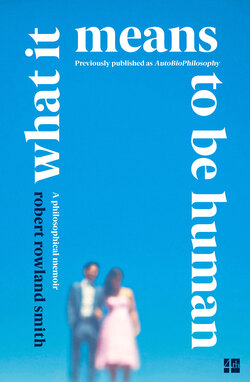Читать книгу What it Means to be Human - Robert Rowland Smith - Страница 26
Sex: more recreation than reproduction
ОглавлениеWhen Freud writes about incorporating those who have passed away, it fits, perhaps surprisingly, with his earlier theory of sexuality. Whether mourning the dead or reaching out to the living, we are bringing the other towards us, overcoming distance, making relationship. Underlying both is an instinct in us to bond with others and get close to them. It is this instinct which for Freud is ‘erotic’, though in the very broadest sense. He’s not talking about sex narrowly defined, but about the wider need in us to discharge our energy. Given that the energy has to go somewhere, our erotic instincts provide a positive channel.
Not that sex is absent from the picture. Our erotic instincts do also take the form of wanting sex with others, that is bringing them into physical intimacy with us. These erotic instincts have an interest not just in the short-term pleasure of the moment, however, but also in the long-term furthering of the species. Sex goes together with life.
Maybe that is a statement of the blindingly obvious. Yet the obvious is recalled more seldom than it might be. Thanks both to the availability of contraception and to a growing acceptance of homosexuality, we make the connection between sex and life less automatically than once we did. Whatever the morals of it, there just is an awful lot of sex that doesn’t result in babies being born. That makes sex overall more about recreation than reproduction, as shown in the following diagram. (In the diagram, the size of the circles is a crude indicator of the amount of different kinds of sex that we have.) And whilst the dominance of recreational sex can dull our appreciation of the link between sex and life, our appreciating it less doesn’t stop that link from holding.
So how much of the life force is present when we hold erotic feelings for another person? How far is our sexual desire controlled by an unconscious instinct to reproduce? Of course, the question doesn’t seem to apply to same sex relationships, where reproduction isn’t an option. But does that make the question a bad one? After all, you can still want what’s not available. To put it philosophically, impossibility is no constraint on desire. So, oddly enough, we can’t be 100 per cent certain that the instinct to reproduce plays no part in homosexual desire, especially if instincts are unconscious, which in Freud they are. That isn’t supposed to be an underhand way of averring that gay people are closet heterosexuals. It is just that an unconscious instinct for life might conceivably roam in the background of all erotic feelings.
Unfortunately, it’s hard to prove. What we can say is that without reproduction humans would die out, meaning that as a species we need to have sex for our own survival. So although, when we want sex, we might never get any felt sense of the larger imperative, such an imperative could well be there. Maybe that implies that we are rewarded with sexual pleasure by the species as a sop, to ensure its own continuity. But so what? The species isn’t different from us, its members. If we are being manipulated, it’s we who are doing the manipulating. We win both ways.
